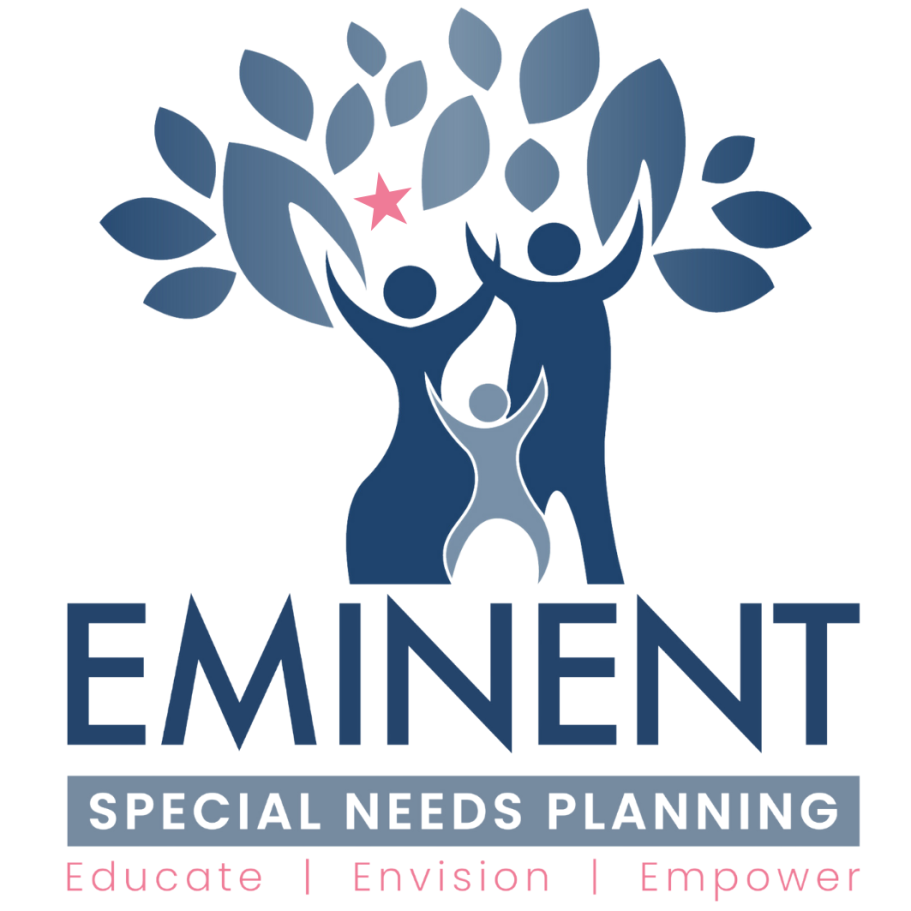Common Mistakes Families And Advisors Make In Special Needs Trusts And Planning
- Fail to ask every client, “Are you now or will you be financially or personally responsible for a person with special needs?”
- Try to create their own version of a Special Needs Trust.
- Do not specifically exclude, without disinheriting, the person with special needs by name from Wills and Trusts.
- Think that excluding the person with special needs from wills and traditional trusts is sufficient planning.
- Exclude person with special needs and give money to others for their care.
- Give the person with special needs authority in trust provisions, (ie. change trustees and remainderman, request reports, and include the “Crummy” Trust withdrawal provision).
- Coordinating the plan with other advisors (legal, financial, tax, insurance, and government agencies) is not addressed.
- Not familiar with the different types of Special Needs Trusts and the appropriate circumstances or need for their use.
- Not aware of Miller or Qualified Income Trusts and their use in planning.
- Fail to change beneficiaries on their life insurance, pensions, annuities, etc. and do not transfer assets into their traditional Revocable Living Trust.
- Include language in the Special Needs Trust such as “support and maintenance” and “food and shelter,” that can adversely affect government entitlement amounts, benefits, and eligibility.
- Do not consider “Lookback/Payback” penalties (loss of benefits up to five years or) for improper transfer of assets from their name in order to qualify for government benefits.
- Draft Special Needs provisions in a traditional Revocable Living Trust improperly or in a will as a testamentary trust without considering need for a Living Trust ie. Who is funding the trust and when?
- Do not consider the effects other family members’ estate plans will have on the person with special needs – grandparents, divorced parent, remarriage, siblings, aunts, and uncles (laws of intestacy and per stirpes distributions by grandparents and others could leave assets directly to a person with special needs).
- Divorce issues not addressed such as the impact of child support on government benefit eligibility for either a minor or adult child with special needs.
- Overlook sources of income and their effect: Social Security, Veterans Administration, State retirement, Federal Government, earned income, structured settlements, child support, adoption subsidies, etc.
- Use Irrevocable Life Insurance Trusts (ILITs) as Special Needs Trusts.
- Appoint guardians for “minor’ children, but do not specifically state guardianship for an “adult incapacitated child.”
- Do not consider using Durable Power-of-Attorney for Health, Legal, and Financial issues when the person is competent and understands the document.
- Do not realize that the person with special needs may require lifetime care and supervision. They may outlive all the named guardians and trustees. Therefore, the last surviving guardians and trustees should be given the authority to appoint their successors rather than the leaving the decision to the State.
- Do not consider giving a guardian, family member serving as co-trustee, advocate or other interested party the authority to change financial institutions serving as sole or co-trustee (Trust Protector).
- Fail to list persons they do not want to be named as guardians and/or trustees (ie. ex-spouse, other family members).
- Do not consider naming minor children as future guardians or trustees (after age 18)
- Overlook the possibility and impact of the person with special needs marrying and having children.
- Ignore the effects of employment wages and other income sources of the person with special needs on their government benefit eligibility.
- Do not take into account the effects of UGMAs, UTMAs, and 529 Plans on government benefit eligibility and “payback” risk.
- Unaware of how to properly protect and transfer inheritance or structured settlement funds out of the person’s name and into an OBRA Trust (Special Treatment Trust in AZ).
- Fail to address and coordinate other critical areas of planning (Government Benefits, Letter of Intent, Financial/Budgetary projections and resources.
- Recommend and name institutional and/or private trustees without considering the following:
- Do they manage Special Needs Trusts (SNT)?
- How many trusts do they manage?
- What is the total amount of SNT assets under management?
- Who are their SNT specialists and what is their experience?
- Do they provide assistance with Social Security issues and forms?
- What is the minimum amount they will take under management?
- If less than their minimum, do they outsource management?
- Will the institution serve as co-trustee with an individual?
- What has been their return on investment the last 3, 5, 10, 20 years?
- What are their fees?
- What services do their fees include?
- What additional services do they offer and what are the costs?
- In which states do they operate?
- If not appointed trustee, do they provide consulting services?
Eminent Special Needs Planning, LLC
*IN PARTNERSHIP WITH BART STEVENS SPECIAL NEEDS PLANNING, LLC
Nic(ole) Kuck
Executive Director, Special Needs Planner
**generally tax-deductible
©Copyright. All rights reserved.
We need your consent to load the translations
We use a third-party service to translate the website content that may collect data about your activity. Please review the details and accept the service to view the translations.
